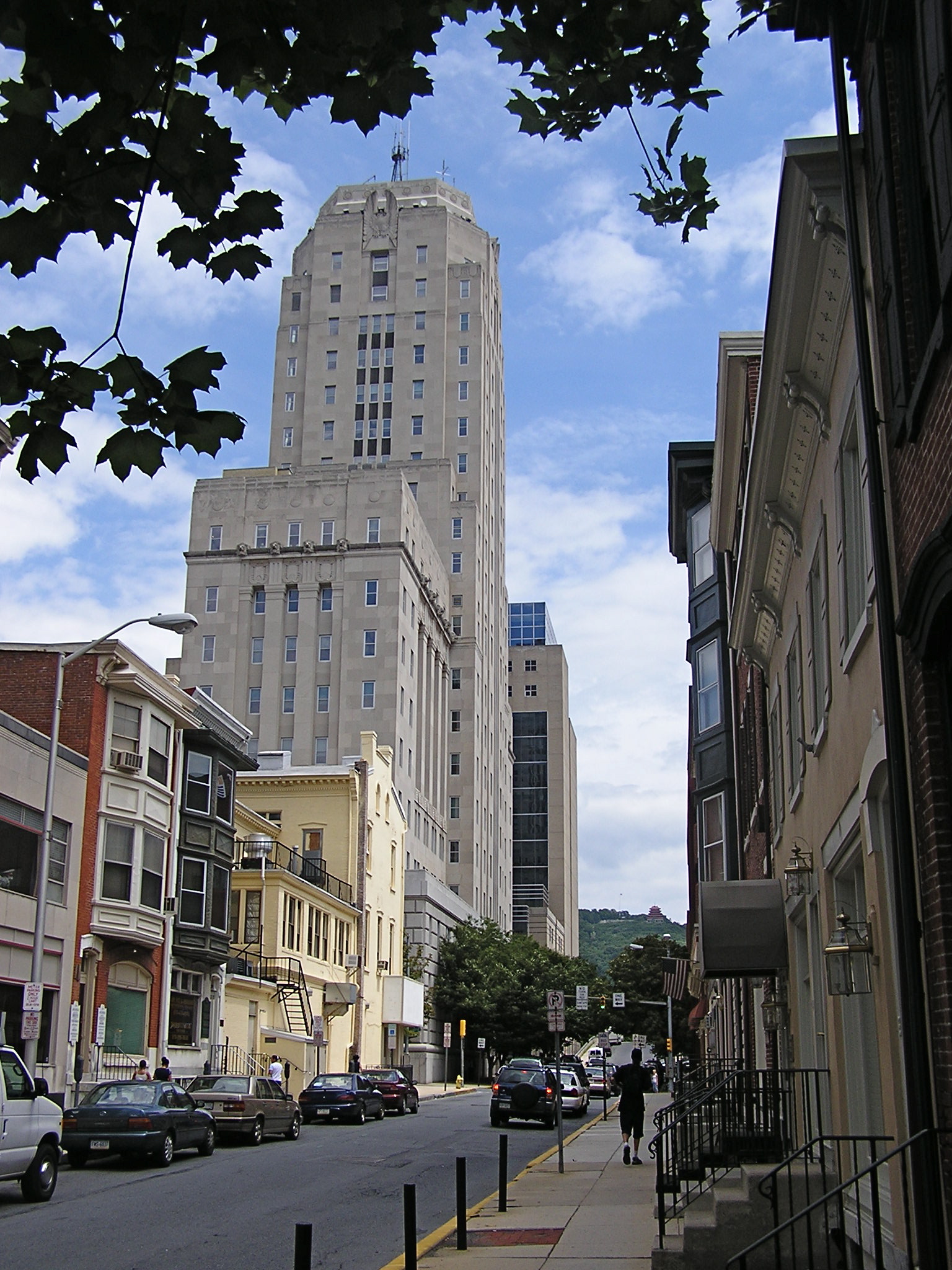|
Reading Brewing Company
The Reading Brewing Company was an American brewery established by Philip Bessinger in 1886. Headquartered in Reading, Pennsylvania, it ceased operations in 1976. History On August 9, 1886, "stockholders of the Reading Brewing Company met ... at Bissinger's Cafe, for the purpose of effecting a permanent organization." Henry S. Eckert, Garrett B. Stevens, and Lewis Kemp were then elected as president, secretary, and treasurer, respectively, while Philip Bissinger and George Pohlig were appointed as general manager and superintendent. The board's Committee on Subscription reported that "over three-fourths of the capital stock" of the company was already "subscribed," and the paperwork for the company's application for a charter was completed in anticipation of its submission to state government officials the next day. The president and general manager were then authorized to "proceed at once in making preparations for the erection of he company's new brewerybuildings." Construct ... [...More Info...] [...Related Items...] OR: [Wikipedia] [Google] [Baidu] |
Reading, Pennsylvania
Reading ( ; Pennsylvania Dutch: ''Reddin'') is a city in and the county seat of Berks County, Pennsylvania, United States. The city had a population of 95,112 as of the 2020 census and is the fourth-largest city in Pennsylvania after Philadelphia, Pittsburgh, and Allentown. Reading is located in the southeastern part of the state and is the principal city of the Greater Reading Area, which had 420,152 residents as of 2020. Reading is part of the Delaware Valley, also known as the Philadelphia metropolitan area, a region that also includes Philadelphia, Upper Darby Township, Pennsylvania, Camden, and other suburban Philadelphia cities and regions. With a 2020 population of 6,228,601, the Delaware Valley is the seventh largest metropolitan region in the nation. Reading's name was drawn from the now-defunct Reading Company, widely known as the Reading Railroad and since acquired by Conrail, that played a vital role in transporting anthracite coal from the Pennsylvania's ... [...More Info...] [...Related Items...] OR: [Wikipedia] [Google] [Baidu] |
United States
The United States of America (U.S.A. or USA), commonly known as the United States (U.S. or US) or America, is a country primarily located in North America. It consists of 50 states, a federal district, five major unincorporated territories, nine Minor Outlying Islands, and 326 Indian reservations. The United States is also in free association with three Pacific Island sovereign states: the Federated States of Micronesia, the Marshall Islands, and the Republic of Palau. It is the world's third-largest country by both land and total area. It shares land borders with Canada to its north and with Mexico to its south and has maritime borders with the Bahamas, Cuba, Russia, and other nations. With a population of over 333 million, it is the most populous country in the Americas and the third most populous in the world. The national capital of the United States is Washington, D.C. and its most populous city and principal financial center is New York City. Paleo-Americ ... [...More Info...] [...Related Items...] OR: [Wikipedia] [Google] [Baidu] |
Brewery
A brewery or brewing company is a business that makes and sells beer. The place at which beer is commercially made is either called a brewery or a beerhouse, where distinct sets of brewing equipment are called plant. The commercial brewing of beer has taken place since at least 2500 BC; in ancient Mesopotamia, brewers derived social sanction and divine protection from the goddess Ninkasi. Brewing was initially a cottage industry, with production taking place at home; by the ninth century, monasteries and farms would produce beer on a larger scale, selling the excess; and by the eleventh and twelfth centuries larger, dedicated breweries with eight to ten workers were being built. The diversity of size in breweries is matched by the diversity of processes, degrees of automation, and kinds of beer produced in breweries. A brewery is typically divided into distinct sections, with each section reserved for one part of the brewing process. History Beer may have been known in Neol ... [...More Info...] [...Related Items...] OR: [Wikipedia] [Google] [Baidu] |
Prohibition In The United States
In the United States from 1920 to 1933, a Constitution of the United States, nationwide constitutional law prohibition, prohibited the production, importation, transportation, and sale of alcoholic beverages. The alcohol industry was curtailed by a succession of state legislatures, and finally ended nationwide under the Eighteenth Amendment to the United States Constitution, ratified on January 16, 1919. Prohibition ended with the ratification of the Twenty-first Amendment to the United States Constitution, Twenty-first Amendment, which repealed the Eighteenth Amendment on December 5, 1933. Led by Pietism, pietistic Protestantism in the United States, Protestants, prohibitionists first attempted to end the trade in alcoholic drinks during the 19th century. They aimed to heal what they saw as an ill society beset by alcohol-related problems such as alcoholism, Domestic violence, family violence, and Saloon bar, saloon-based political corruption. Many communities introduced al ... [...More Info...] [...Related Items...] OR: [Wikipedia] [Google] [Baidu] |
Beer Brewing Companies Based In Pennsylvania
Beer is one of the oldest and the most widely consumed type of alcoholic drink in the world, and the third most popular drink overall after water and tea. It is produced by the brewing and fermentation of starches, mainly derived from cereal grains—most commonly from malted barley, though wheat, maize (corn), rice, and oats are also used. During the brewing process, fermentation of the starch sugars in the wort produces ethanol and carbonation in the resulting beer.Barth, Roger. ''The Chemistry of Beer: The Science in the Suds'', Wiley 2013: . Most modern beer is brewed with hops, which add bitterness and other flavours and act as a natural preservative and stabilizing agent. Other flavouring agents such as gruit, herbs, or fruits may be included or used instead of hops. In commercial brewing, the natural carbonation effect is often removed during processing and replaced with forced carbonation. Some of humanity's earliest known writings refer to the production and distribu ... [...More Info...] [...Related Items...] OR: [Wikipedia] [Google] [Baidu] |



